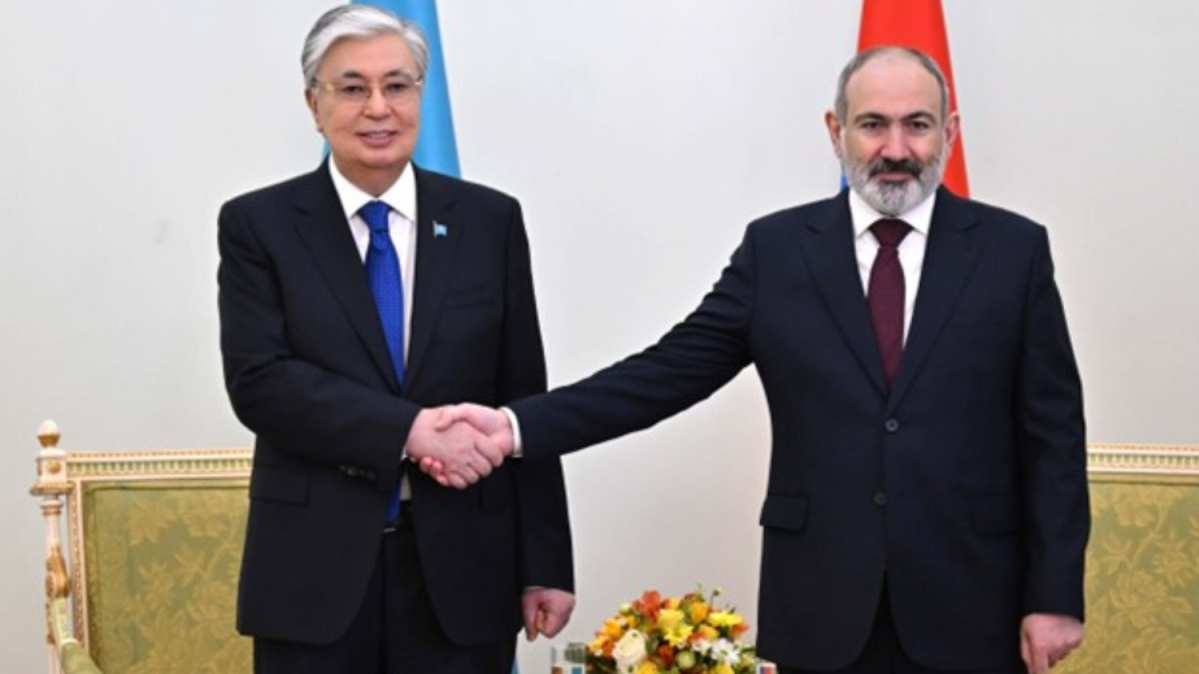Aliyev highlights Azerbaijan’s gas exports and renewable ambitions at energy council meeting
Azerbaijan’s President Ilham Aliyev highlighted the country’s expanding gas exports to Europe and its ...

Armenian Prime Minister Nikol Pashinyan will travel to Astana for an official visit from the 20th –21st November, according to the press service of Akorda.
During the two-day trip, delegations from both countries are expected to discuss prospects for the further development of bilateral cooperation.
Economic relations between Kazakhstan and Armenia are shaped by both bilateral agreements and participation in the Eurasian Economic Union.
In 2024, the trade turnover between the two countries amounted to approximately $36 million.
Kazakhstan’s Ministry of Economy say that additional export opportunities to Armenia could reach around $350 million, primarily through supplies of metallurgical, petrochemical, chemical, and food products.
Pashinyan’s visit coincides with significant developments in regional logistics and security.
Following the signing of the Washington Declaration on peace between Armenia and Azerbaijan, new possibilities for transport connectivity are emerging. Direct overland routes between the countries had long been impossible due to closed Armenia-Azerbaijan borders, which have only recently begun to open.
Kazakhstan’s wheat was the first cargo to transit through Azerbaijan to Armenia, while the complete lifting of transit restrictions was announced during the meeting between the presidents of Kazakhstan and Azerbaijan on 21 October 2025 in Astana.
For Kazakhstan, the opening of new transit routes through the Caucasus is important for supplying goods to the Middle East.
For Armenia, it provides access to markets in Central Asia and China, allowing for diversification of trade flows and reduced dependence on unstable regional roads. Kazakhstan’s active development of the Trans-Caspian corridor, including increased capacity of ports and railways, makes these routes more accessible for freight transport.
In this context, Pashinyan’s visit carries practical significance. It takes place amid the normalisation of regional relations and will focus on discussions of economic ties, transit opportunities, and logistical solutions capable of ensuring more stable cooperation between the two countries.
U.S. President Donald Trump said the U.S. military has enough stockpiled weapons to fight wars "forever"; in a social media post late on Monday. The remarks came hours before conflict in Iran and the Middle East entered its fourth day.
U.S. first lady, Melania Trump chaired a UN Security Council meeting on children and education in conflict on Monday (2 March), a move criticised by Iran as hypocritical following U.S. and Israeli strikes that triggered a UN warning about risks to children.
China’s Foreign Minister Wang Yi has held talks with his Russian counterpart Sergei Lavrov following recent military strikes carried out by the United States and Israel on targets in Iran, as tensions in the Middle East continue to rise.
A torpedo from a U.S. submarine has sunk an Iranian warship off the coast of Sri Lanka, U.s. Secretary of Defense, Pete Hegseth told reporters. The Sri Lankan navy carried out a rescue operation for dozens of sailors in the wake of the strike.
The U.S. embassy in Riyadh was hit by two drones resulting in a limited fire and some material damage, the kingdom's defence ministry said in a post on X on Tuesday, citing an initial assessment.
Azerbaijan’s President Ilham Aliyev highlighted the country’s expanding gas exports to Europe and its renewable energy ambitions during the Southern Gas Corridor Advisory Council’s 12th Ministerial Meeting and the Green Energy Advisory Council’s 4th Ministerial Meeting in Baku on Tuesday (3 March).
Rising tensions in the Middle East are beginning to affect Kazakhstan’s economy and citizens, disrupting grain trade across the Caspian Sea and prompting the evacuation of hundreds of Kazakh nationals from several countries in the region.
Türkiye’s President Recep Tayyip Erdoğan has told Pakistan’s Prime Minister Shehbaz Sharif that Ankara is ready to help reinforce the ceasefire between Pakistan and Afghanistan, as clashes between the two neighbours continue for a sixth consecutive day.
How do political narratives travel from Moscow to Westminster?
Israeli troops have moved further into southern Lebanon, the Israel Defence Forces (IDF) said on Tuesday, as the country continued strikes against Hezbollah targets in Lebanon.
You can download the AnewZ application from Play Store and the App Store.

What is your opinion on this topic?
Leave the first comment